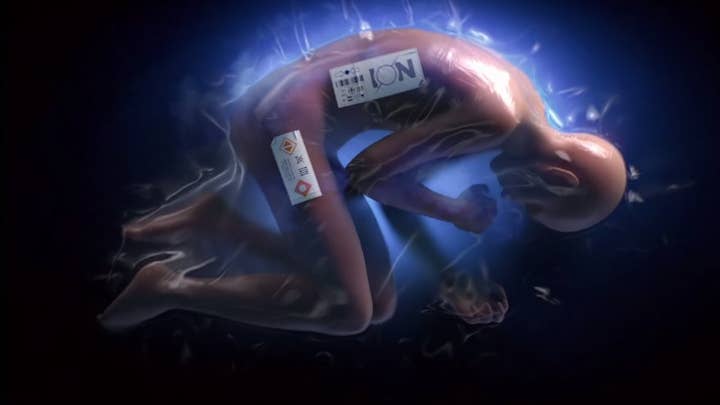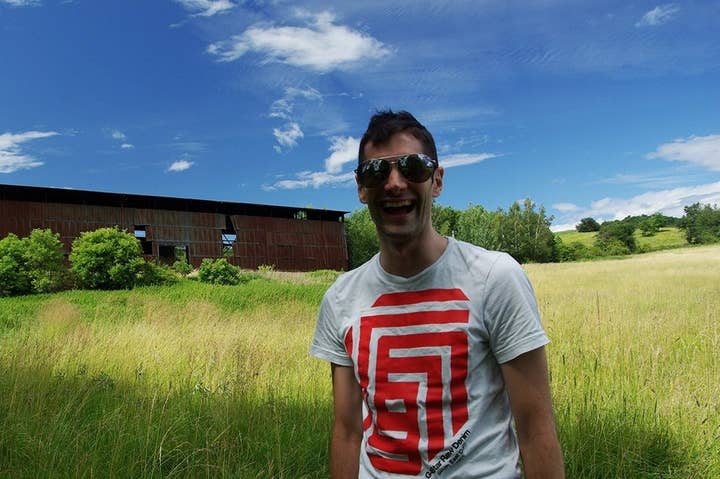Dean Hall: We're not seeking to make a game that heaps of people will play
The DayZ creator explains why new space title Ion will change how you think about MMOs, games and consequences
"We're not seeking to make a game that heaps of people will play. We're really targeting this at... well we don't know how many are going to play, we're only making it because I really want to play this game," says Dean Hall of his new game, Ion.
"I'd really been looking for an excuse to make this game, there was a game called Space Station 13 and I loved it, it was perfect... I wanted to see what it was like as an MMO. I'm not trying to remake or redefine Space Station 13, but I really hope someone does that. It's more to take that concept and see how it works in the MMO space."
Hall also cites Ultima Online as a game that has influenced his development process and highlights what's important to him in his new game.
"I don't want it to necessarily be about being fun, I want it to be something you can lose yourself in. I lost myself in Ultima Online, because I believed in the world and it gave me context to what I was doing because I was making choices and decisions. That to me is far more important."
"We're not seeking to make a game that heaps of people will play"
What we know about Ion so far is that it's a third-person, isometric game with a Diablo-esque camera view. He's also hinted that players will have organs (one of his recent anecdotes involves a bug where player's organs would fall out) and elements like gas and water will be part of the simulation.
"I fought quite hard to call us an MMO. We had a big argument with marketing and all that saying 'don't call it an MMO - everyone thinks of elves and orcs,' and my argument was that was exactly the reason we needed to call it an MMO. We need to reclaim that."
It's an ambitious project, one that Hall has teamed up with tech company Improbable to make a reality. When he saw the persistent worlds that Improbable's simulation tech could support he paid up there and then.
"I did the wire transfer for funding the first prototype on my phone. $250K, no contract."
Nick Button-Brown, studio head at Improbable, jokes that it was the most "bling" thing he'd ever seen.
"In the first day we had the initial gas simulation and water simulation up and running," says Hall, shaking his head.
"To get that working in a 2D prototype had taken me six months, previously. So I was able to squash six month's work into a day."
The persistence offered by Improbable's tech also allows for consequences beyond the usual kill/destroy options in MMOs.

"Everything you do has consequences. If you do something dumb, OK the world will deal with it, but does that change something for you in the future?" explains Button-Brown.
They share stories of funny things that have happened in testing, players stealing each other's helmets and the like, but Hall is clearly keen to advance beyond these simple shenanigans.
"The problem we've had in the past is that we didn't really have persistence running so we were resetting it quite often and that meant people just screwed around. I want us to push through that, now we've got that persistence working with it we can push through that and it's actually about people playing this game over years. It's that context that I seek."
He's also brutal in his approach to new players, admitting that the experience for beginners is currently bad. Button-Brown defends the early experience, but Hall seems clear on his priorities.
"I did the wire transfer for funding the first prototype on my phone. $250K, no contract.
"I would not want to compromise the context of the game just for a new player experience. I'd rather us have less players and a better experience for those players who really want this type of game."
Hall is of course best known as the creator and spokesperson for DayZ, the Arma mod that spawned a thousand brutal deaths from zombie attack, dehydration and murder.
"With DayZ we were never really able to make players care about their character. They cared about their gear. With Ion I think we've got a good plan to achieving that," he says. In some ways DayZ offered some intense insights into player behaviors that will inform Hall's other projects.
"I looked through a lot of the metrics for how people were playing and what we found was that the bandits, the bad people in the game, they were very smart and they grouped up. They'd do bad things but they'd be very loyal to their group. The good players were very naive. They'd go in and just get wiped out, they didn't tend to group up."
Ion is still very much in development and Hall and Improbable are both keen to keep it shielded from prying eyes until later in the development process. Hall isn't concerned about hype or marketing, more about making sure the game is as ambitious as his ideas.
"You can lose a lot of time trying to figure out how to tell someone about your game. All I really want is I want a situation where people are like 'I played this great game, you have to play it.' That's I think the best thing we can hope for with this game because we're going for something quite crazy. So rather than trying to come up with a simple message that's what we're aiming to achieve."










